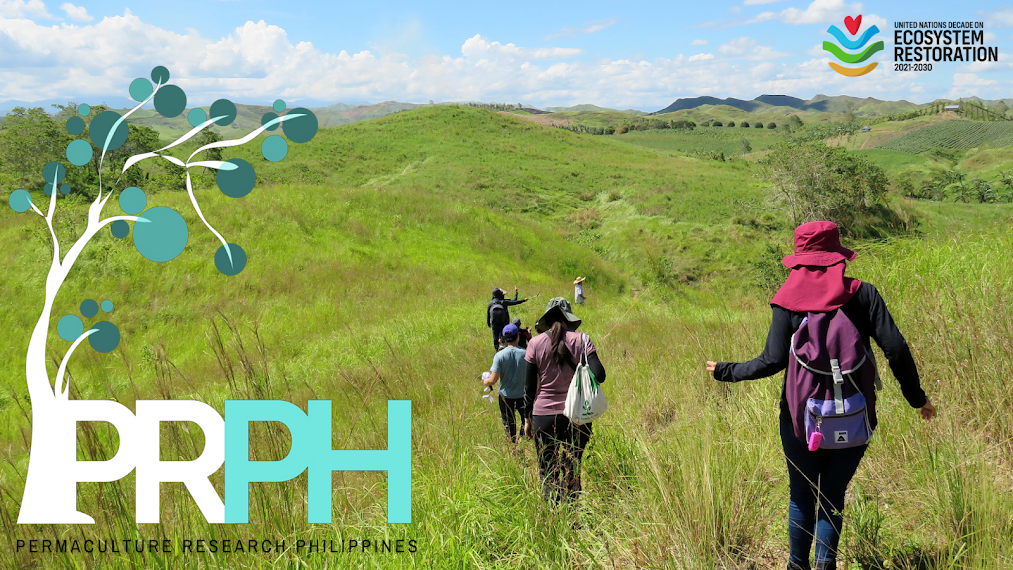* The Herb Spiral! A few weeks ago when we were designing our final project in Cabiokid for a permaculture design training course, one of my classmates, Gwyneth, suggested that I should put an herb spiral in my garden. I actually drew that suggestion into my project plan.
* Yesterday, I was reading the STEP Systems Thinking book and came across the principle behind the herb spiral. Sun-loving herbs are placed on top while water-loving herbs such as mint are placed at the bottom part. So when it rains, most of the water will trickle down to the mint plants while the topmost plants capture most of the sun. I was intrigued with the concept and Googled images of herb spirals. Most of them were made of bricks. But I wanted to make something without buying anything. I saw that I had many broken pieces of concrete lying around the garden and I have coconut shells that I gathered from a tree that was trimmed. Then I scraped off some finished compost that I use to cover my layers in the compost heap. I also added some soil from mounds I found around the garden. This afternoon, I bought a few herbs to complete the spiral. And here it is!


















.png)